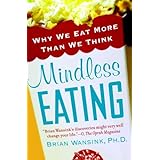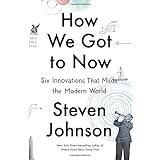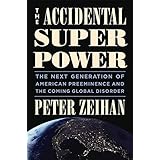Books to Read – Summer 2015
I’ve been in a pretty heavy season of work these last few months, and as a result the reading has slipped a bit. Here’s a list of my must-reads from the last few months.
The Accidental Superpower by Peter Zeihan
Every now and then I read a book that has the effect of slapping me upside the head. The Accidental Superpower is one of those books. The book begins with an in-depth review of the greatest civilizations of the past, and the overwhelming advantage that geography has played in their ascension. Against this backdrop, Zeihan breaks down the current world order and explores how he sees the next 20-30 taking shape. From China to Europe to Russia, he overlays the winning formulas of the past against the modern landscape and then attempts to predict what’s happening next.
By factoring in birth rates, population aging, investable capital and access to natural resources for energy and food, Zeihan presents the case that the United States is uniquely positioned to emerge as the only remaining superpower over the next few decades. He also foretells of the coming withdrawal of the US as the world’s peacekeeping force (inasmuch as that’s true) due to our ever-diminishing reliance on any other country for economic growth.
Whether the conclusions are correct or not, there is enough meat in this book to get you thinking about a different lens through which to view current events. The Chinese market weakening, ever-expanding aggression of Russia, and the US withdrawal of military force from many parts of the world start to make a lot more sense.
Just like The Fourth Turning, this book will give you a lot to think about.
The Name of the Wind and The Wise Man’s Fear by Patrick Rothfuss
These two books were recommended to me by a friend of mine. I save my fiction reading for the end of the day, when I need to clear my head of the day’s activities. These books are a perfect read for that situation. They are the first two in a trilogy yet to be completed.
The story follows a boy named Kvothe (pronounced “Quothe”) as he grows up among a gypsy troupe. His family is brutally murdered by the Chandrian, a group of demons who no one will speak of or knows much about. Kvothe’s life becomes a quest to find the Chandrian and destroy them. The story is told from Kvothe’s memory as he is telling it to a biographer. His feats are legendary in all of the land, yet no one knows who he is.
While these books have some elements common to other more well-known fantasy trilogies, I really enjoyed the unique tales and interweaving of past with present as the story progresses. Definitely worth picking these up and giving them a spin.

Mindless Eating: Why We Eat More Than We Think by Brian Wansink
I get a lot of my book recommendations from the Tim Ferriss podcast. If you aren’t listening to this podcast, you should be. This particular book came from Ramit Sethi, who’s launched a remarkably successful online platform for personal finance. I don’t spend a lot of time worrying about what I eat, mostly because I’ve always eaten relatively healthily (or at least thought I did). I read this book on a whim and found it to be really insightful.
When I read a book like this, I’ll get one or two nuggets from it that I try to form into habits. My first takeaway from this book is that I need to keep the food I really like but that is not at all healthy difficult to access or not in plain sight. We tend to eat what’s lying around, so I now try to keep only food that’s good for me out and visible. Doesn’t always work, but I’m better at it. My second takeaway is that I can actually eat a lot less than I think I need to and be fulfilled. I have dramatically reduced the quantity of food I consume in an average day (I’m working on a separate post about this topic, coming soon!) simply by paying attention to how much I put on my plate.

How We Got to Now: Six Innovations That Made the Modern World by Stephen Johnson
Refrigeration. Clocks. Eyeglasses. Clean Water. These are four of the innovations that Stephen Johnson explores in depth in this really well-written exploration of some of the most important innovations in history. Johnson has a knack for both making the discovery of these innovations interesting, as well as tracing the impact from then to now. The book has surprisingly rich storytelling and I found myself saying on more than one occasion “I never would have made the connection from there to here.”
As usual, there’s a mix of books here. You’ll like every one of them.
Get reading!
Back to BlogGet the most recent stories
Jorem ipsum dolor sit amet, consectetur adipiscing elit. Nunc vulputate libero et velit interdum, ac aliquet odio mattis.



